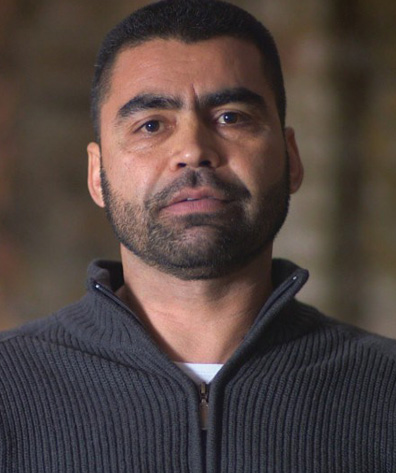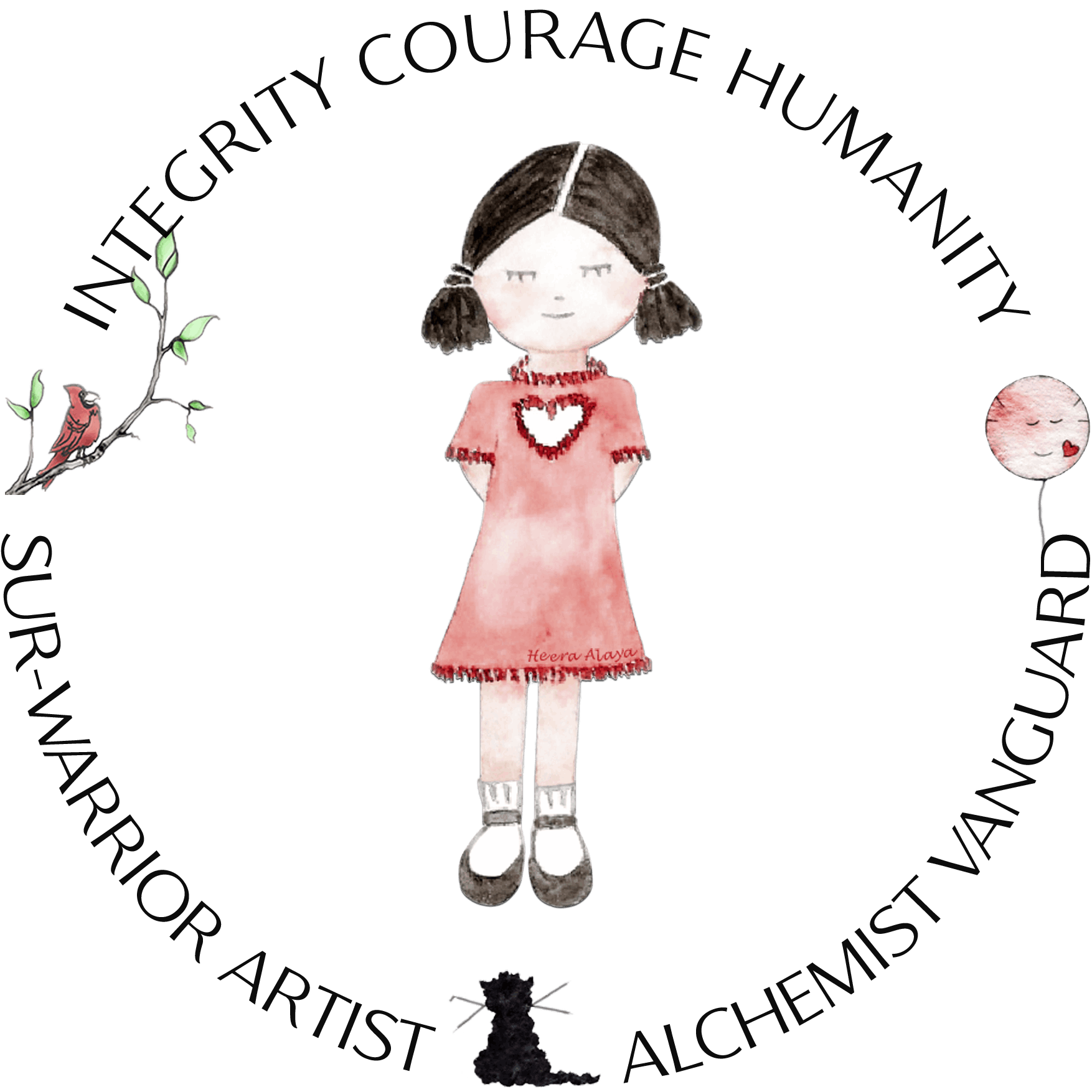
“I risk my life to pursue my aim
of revealing the truth.
I have been rejected in the process,
but it has made me strong.”
NAJIBULLAH QURAISHI
Journalist and filmmaker, UK
January 1st, 2021
OPEN WINDOWS | In Conversation
London-based Afghan investigative journalist and filmmaker Najibullah Quraishi works predominantly in Asia and Arab countries. Driven to present the truth, Mr Quraishi wrestles with brutal elements to chronicle documentaries such as The Dancing Boys of Afghanistan, The Girls of the Taliban, Opium Brides, Behind Taliban Lines, Fighting for Osama, and Children of the Taliban. Mr Quraishi is the recipient of the Rory Peck Award, the Sony International Impact Award, and the Amnesty International Media Award.
Heera Alaya: Your documentary, The Dancing Boys of Afghanistan, addresses paedophilia and the sexual slavery of vulnerable Afghani boys. Until I chanced upon your film a few years ago, I was unaware of bacha bazi [Boy play]. Thank you for your educational documentaries.
Najibullah Quraishi: You are welcome. It’s my duty to make films that present the truth.
How and when did you first learn about bacha bazi? And what compelled you to expose this crime against children?
This illegal practice of bacha bazi has existed in Afghanistan for decades. As a child, I heard of places where young boys were made to dance, and I assumed they were dancing or perhaps they were dance competitions.
The practice of bacha bazi sounds like pederasty [sexual activity involving a man and a boy]. During the Roman Empire, women were for child-rearing, and boys, so long as they were of lower status, were exploited for pleasure.
When I investigated the history of bacha bazi in Afghanistan, the elders around the country informed me that this practice started in villages where people had nothing to do at night. To compensate for their boredom, people made their evenings interesting with musicians and boys dancing. However, men got pleasure from watching attractive young boys dance.
With the start of the war, around 1997 to 1998, in Afghanistan and the escalating conflict with the arrival of the Russians and Mujahedeen, bacha bazi became common among the commanders who started competing for young boys. If one commander had two boys, the other had three boys. Bacha bazi was an open secret—amongst those around the commander and the wife—that these young boys were exploited for sexual activities.
That’s awful.
True. The wives had no power to say anything. In my documentary [The Dancing Boys of Afghanistan], one of the characters, the paedophile, claimed he would keep a boy if his wife allowed him. This paedophile probably wanted to present himself as a modern guy who cares for his wife’s feelings; in reality, he didn’t have to get any permission—he did as he pleased.
The Dancing Boys of Afghanistan presents the sexual slavery of the vulnerable poor child at the hands of the elite—police, politicians and warlords. How can the government enforce laws when Afghani authorities are part of the damage?
As shown in the documentary [The Dancing Boys of Afghanistan], officials from the Afghan National Army and the police forces, along with warlords, were involved in the practice of bacha bazi.
Before the release of my documentary, the law did not protect Afghani boys, and offenders went unpunished. But since publishing The Dancing Boys of Afghanistan, the local media in Afghanistan and human rights activists in Afghanistan and worldwide started talking about bacha bazi, which put pressure on the Afghan government to take action. Finally, the Criminal Code was revised in May 2018 to criminalise the practice of bacha bazi. However, bacha bazi still exists; only it’s less rampant.
What does the future hold for these dancing boys who are, in addition to being ostracised and rejected by family, stripped of their masculinity at a very young age? Do these boys turn to substance abuse, or/and do they become predators?
When a child at the age of eight or nine is exposed to a particular lifestyle [bacha bazi], they learn to like it and eventually stay on that route, becoming predators. The few who try to escape are killed. Moreover, these boys can’t change their lives as they come from impoverished families, which is one of the reasons they become bacha bazi. The young boys eventually merge with the paedophiles and commanders, and the once young boys end up scouting for new young boys.
The exploited become part of the system that propagates a culture of sexual slavery.
Yes.
What supports the culture of denial surrounding women’s sexual abuse, as shown in your documentary Opium Wives?
In Afghanistan, talking about sex and sexuality is seen as shameful and embarrassing, which is why the sexual exploitation of girls is not acknowledged.
How does the oppression of women affect the current status of women in Afghanistan?
Approximately 20 percent of the Afghani population who live in cities and towns know their rights, with a considerable number of women working in positions of power—in offices, the government and as activists. In contrast, nearly 90 percent of Afghanistan’s uneducated population who live in the countryside have no power. The women in the villages don’t know wrong from right, and her husband is like a god; she has to obey whatever the husband dictates.
If these women (in villages) knew how to read and write, they would know that even the religious books affirm that men and women are equal.
Men are considered superior since a framework to support these women is lacking. And should these women complain about their husbands, they will beat them up.
Do repressive circumstances lead rural girls to enrol in madrassa?
Yes. Rural families encourage their daughters to enrol in a madrassa, expecting them to leave once they turn nine or ten to get married. A few girls stay in madrassa until they are 20 or 25, eventually becoming teachers.
What does the madrassa curriculum entail?
In reality, madrassa teachings should be religious; instead, they teach extreme Islamic sentiments, not in the Quran [Religious text of Islam]. Naturally, the girls attending madrassa become extremists, and when these women get married, they impose their opinions on the entire family, influencing the family’s views. In the name of religion, madrassa misuses Islam, a significant threat to the whole country. Little progress is made regarding fighting corruption or women’s rights.
Ultimately, it’s all about political games—people exploit religion for their benefit.
Does brutality—from bacha bazi to dogfighting and Buzkashi—stem from the culture of the subjugation of women, facilitated by poverty and illiteracy?
Yes. The illiterate population in the countryside conducts dogfights, chicken and bird fights, and, as you mention, Buzkashi. Women can’t say anything because they don’t know their rights or have a voice.
So, life remains status quo.
Exactly. In Afghanistan, the wealthy city woman and her poor countryside counterpart have no power. In this entirely agricultural country, the power resides with the men. And though nearly 20 percent of the population lives in the city, that doesn’t mean they have power. Hardly five percent of women have power, and in rare cases, when a man is willing to listen to the woman, they are both educated.
I remember a time—as early as the 1980s—when Afghanistan had a fine reputation as a producer of high-quality dry fruits. How did agricultural choices move from fruit cultivation to opium production?
What you say is true. Afghanistan is suffering because of the neighbouring countries—Russia, Iran and Pakistan. Though Islam forbids drugs, the demand for poppies, along with the encouragement of people around farmers, makes them overlook religious teachings (to grow poppies).
In my film, Opium Brides, I document the poverty of Afghans (Poverty can make people do anything to feed their families.). And though with the arrival of NATO [The North Atlantic Treaty Organization] in 2001, billions of dollars have been spent on Afghanistan, it continues to produce 90% of opium in the world.
So, poppy cultivation is the result of demand and supply.
Exactly. The fact is farmers don’t make a profit from cultivating poppies—they get pennies.
What role does the Taliban (and the Islamic State) play in the billion-dollar opium industry?
Taliban specifies the amount of poppy that can be grown and the sum to be paid towards Zakat—a system where you give 10% of your earnings to the Mujahedeen or the poor.
What did you want the world to know about ISIS [Islamic State] through your documentation?
By exposing ISIS in Afghanistan, I aimed to educate the world that ISIS is active and attempting to get footholds around the country. I also wanted the Afghan government and their allies to realise that Afghanistan—which is surrounded by mountains—could become a haven for ISIS. Any terrorist group can live in these mountains for hundreds of years without being destroyed.
How did you get to document ISIS with the children in the madrassa?
I went to document ISIS as a journalist and worked tirelessly with village elders and local people to secure permission; it was an eight-month wait.
I never expected to go to their madrassa; it happened organically. We were sitting under the tree when one of the ISIS members announced: “It’s time for madrassa.” The man who had to teach the children—the person assigned to be my caretaker—asked me to wait, and at this point, I asked my caretaker if I could film the madrassa; they agreed.
When I started filming, I was heartbroken to witness ISIS manipulate young children—they brainwash children by distorting the words of the Quran and groom children to use weapons and partake in Jihad [Holy War].
How did you maintain your composure amid ISIS?
I am an experienced journalist, having spent considerable time with the Taliban. However, I was nervous before I left to document ISIS—I wasn’t sure if I would come back alive. Once in their midst, I didn’t want to lose my confidence. Had I shown them my fear, it would have been a problem. Instead, I mingled with them, thinking: I am a human, and they are too. I demonstrated that we could move together and share life as human beings. Moreover, I had a couple of local people with me who were close to ISIS, and watching them greet and hug each other calmed me.
In the 1980s, it was alleged that the mining of semi-precious lapis lazuli stone was a source of income for the Mujahideen. How is ISIS funded?
According to my information, ISIS gets monetary support from other countries; it also receives taxes from the local people. ISIS is richer than the Taliban, which is evident in how they dress and the weapons they own.
How have conflict and social upheaval affected the development of Afghanistan?
The money from the West during the last 18 years could have educated an entire generation. However, when corrupt government officials syphon all the money, the rich become richer, and the poor become poorer. We can’t expect anything from a weak government like the present one.
What you say sounds familiar; corruption destroys its people.
Exactly. In instances where fights erupt, or people are murdered, since there is no law or government to take action, local men from the region pass judgment on who owes money to whom or/and who must trade in their daughters or sisters as punishment.
What are the challenging aspects of being an investigative journalist?
I mainly cover the Middle East, (South) Asian countries, and Central Asia, such as Afghanistan, Pakistan and India, which are especially challenging. For instance, when I was investigating the taboo subject of bacha bazi, the government didn’t want it to be exposed. When I went to the foreign ministry to get permission to work on bacha bazi, they emphatically rejected my requests. They refused to give me any information about traveling through Afghanistan for my documentary. I wanted to expose bacha bazi by any means, so I challenged the government, letting them know I didn’t need their permission. I used my contacts in Afghanistan—within the government, the public, tribal elders and other sources—to investigate and expose bacha bazi.
Moreover, being an investigative journalist can be incredibly challenging in a country like Afghanistan because of the insurgency by the Taliban, ISIS and other anti-government elements that control most of the land. The government doesn’t have power in most places.
As a journalist, you cover several countries. Does being Afghani make you more invested in Afghanistan, and does it influence your choice of documentary filmmaking?
Probably. As the first journalist and filmmaker from Afghanistan to attempt to expose taboo subjects, I aimed to open the eyes of people sitting behind the desks of power—the President and the ministers. I would like to know what the Ministry of Counter Narcotics (MCN) does with all the money, why the government refuses to invest in girls’ education, and why poor farmers are neglected.
When making my documentaries The Dancing Boys of Afghanistan and Opium Brides, I sought advice from friends, family, and elders—educated people in their 60s or 70s—who live in the United Kingdom. I shared each film’s concept and asked for their opinion, but everyone rejected me, advising me against making such documentaries: “The films will bring a bad name to Afghanistan.”
My reasoning for others’ dissuasion remained consistent: “If we don’t expose the truth, our Afghani children and society will suffer for years.” This decision to reveal the truth left me feeling alone for sure, but with the advice and support of my wife, I continued doing my best.”
It’s inspiring to learn of your wife’s support and your perseverance.
Thank you. While encouraging me to educate the world by exposing taboo subjects, my wife’s only concern was my safety.
Filming can be tiring. Viewers who watch a documentary for 45 minutes are unaware of months of work behind the scenes. For instance, I filmed The Dancing Boys of Afghanistan for nine months, shooting 110 hours of film. And a great deal of off-camera inhumanity made me cry; I was incredibly sad (and it’s the same with all my documentaries). So, returning and sharing my feelings with my wife is always reassuring.
What makes you put your life on the line to document these stories?
I risk my life to pursue my aim of revealing the truth. I have been rejected in the process, but it has made me strong.
Outstanding Afghani journalists with local channels sometimes ask me: “Naj, you come from London to Afghanistan to expose issues we were unaware of. How do you find such stories?” I tell these talented journalists that while they are thinking of a specific city, let’s say Kabul, I think of the entire country. The fact is also that if these Afghani journalists expose the truth, their lives will be in danger. I live in London, travel to Afghanistan to film, and then fly back to London, from where I present my documentaries. When I return to Afghanistan, my life is in danger, too, but not to the degree of the people who live there.
Does command over the local languages, Farsi and Pashto, aid in telling Afghani stories?
Yes. Luckily, I know both languages, Farsi and Pashto. Most places I visit are Pashto-speaking, except in areas similar to where I filmed The Dancing Boys of Afghanistan; the rest are Pashto-speaking people.
How does the commoner in Afghanistan perceive you?
I know the people’s support and encouragement are with me. Every time I go to Afghanistan and travel from Dubai or Turkey, at least a handful of people recognise and approach me at the airport, appreciating my documentaries. And where I am accustomed to being identified in Afghanistan or Turkey, I was taken by surprise at a US airport security check—an officer asked: “Are you the same Najibullah who makes those documentaries?” This official must have seen the broadcast of my films on Frontline PBS.
Do you see Afghanistan in a different light each time you travel back?
I was hopeful of seeing Afghanistan in a favourable light, but I see the deteriorating state of affairs with each visit, which makes me feel increasingly hopeless.
When NATO entered Afghanistan, all the countries were putting flowers on NATO forces, optimistic about the war ending and peace as a way of life for Afghanistan. And it was like heaven for a couple of years—there was no war, no Taliban, and you could travel where you wanted. American and European forces walked the streets of Afghanistan without any weapons, mingling with people, and the presence of female soldiers made it possible for girls to feel safe enough to step out of their homes.
The situation in Afghanistan is entirely different today. I cannot see any hope in the future; I think Afghanistan is destroyed.
What are your dreams for Afghanistan?
Currently, the youth don’t have a mind of their own. For instance, if a mullah from Saudi Arabia goes to a mosque in a village preaching a distorted version of the Quran, the youth will believe him because they can’t read or write. Illiteracy is why it is easy to brainwash young minds to become suicide bombers.
My dream for Afghanistan is to have an educated generation in 17 years. Without education, we can’t build a country, and we can’t bring positive change.
Learn more about Najibullah Quraishi.




